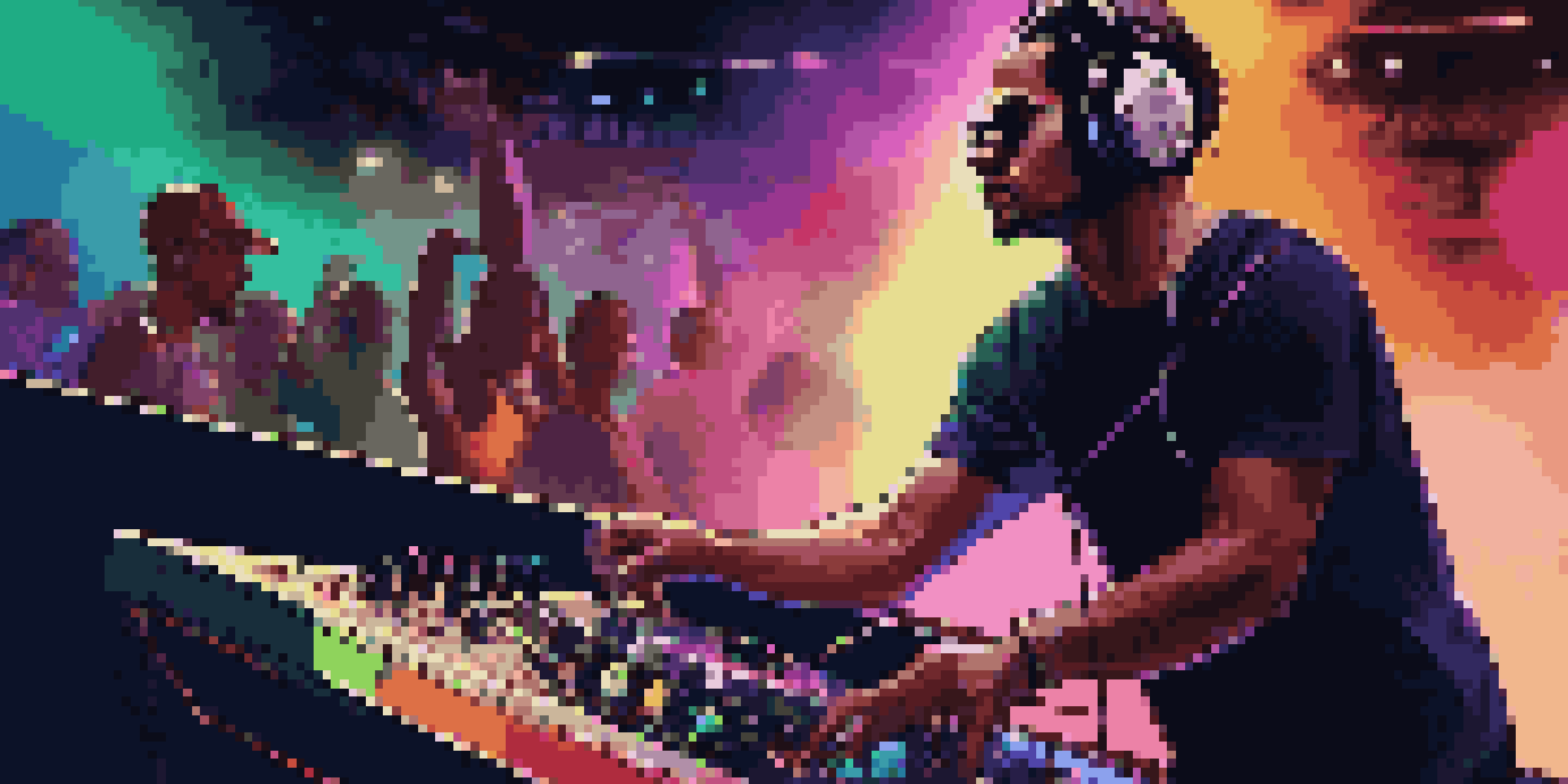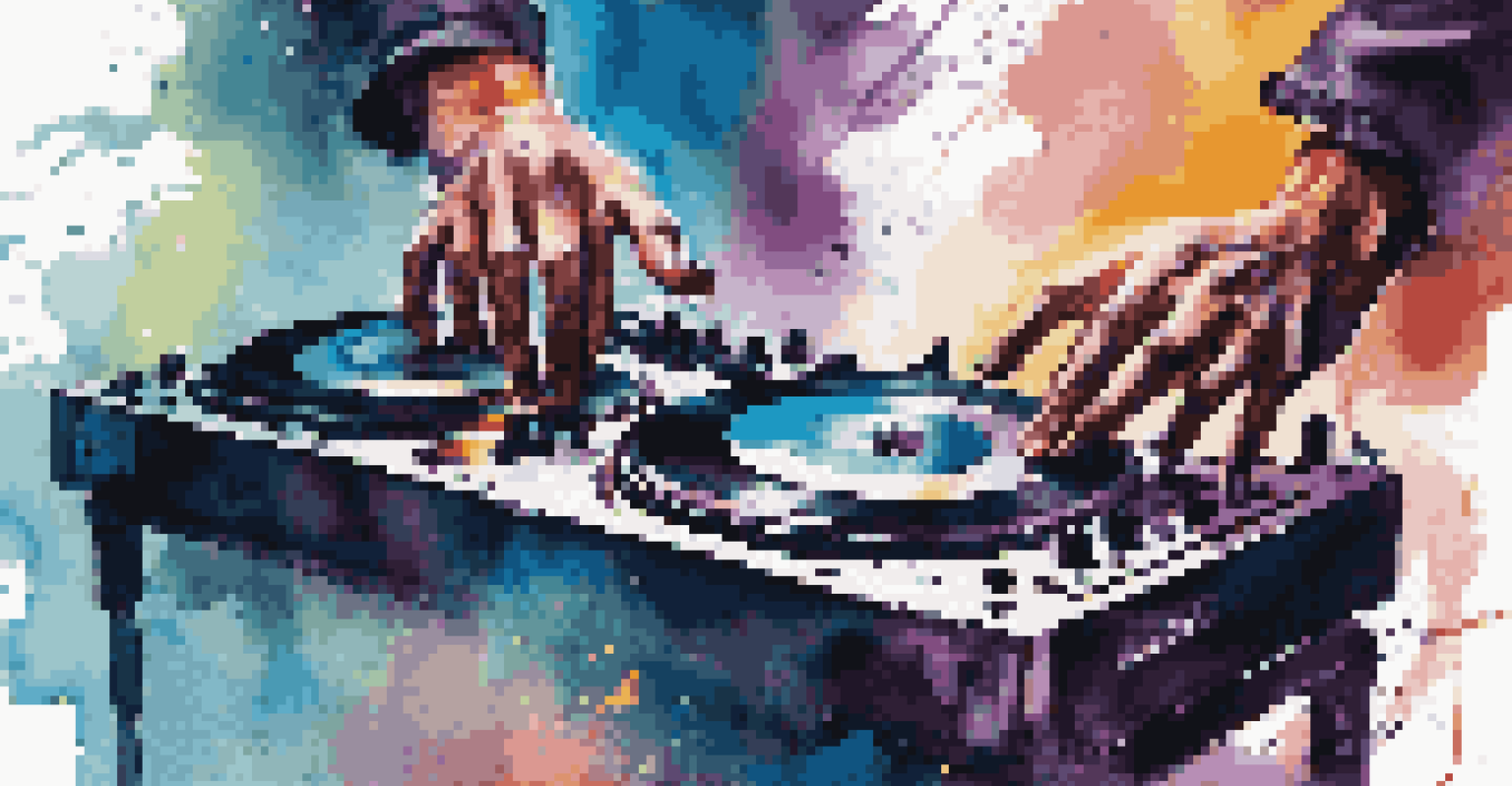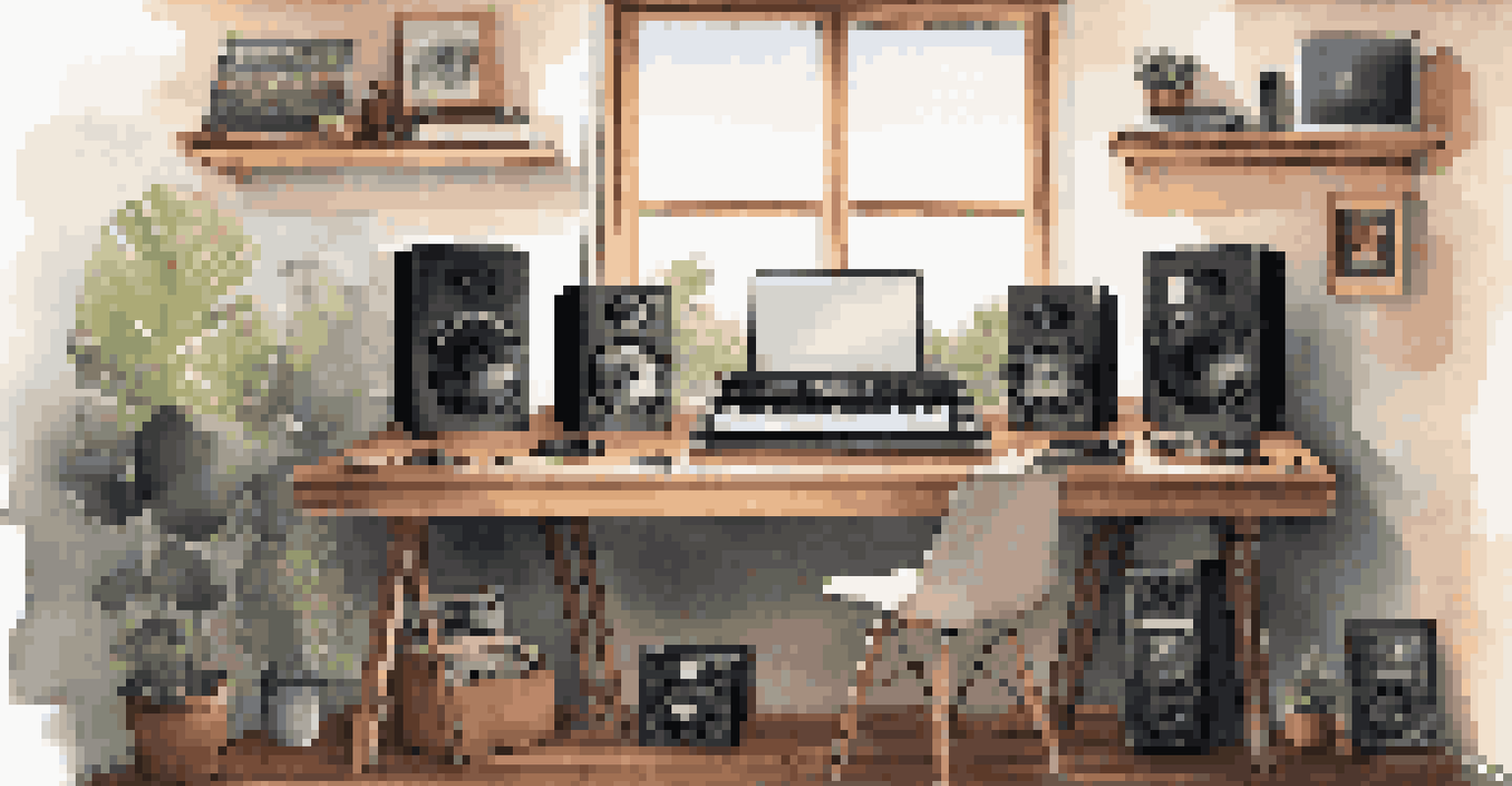The Importance of Practice in Mastering DJing Skills

Understanding the Role of Practice in DJing
Practice is the backbone of mastering any skill, including DJing. Just like learning to ride a bike or play a musical instrument, the more you practice, the more you improve. This consistent effort helps in understanding the nuances of mixing, beat matching, and navigating music software.
Practice does not make perfect. Only perfect practice makes perfect.
When you practice regularly, you develop muscle memory, which is crucial for smooth transitions and seamless sets. This means your hands will instinctively know what buttons to press or knobs to turn, allowing you to focus on your creative expression rather than just the technical aspects.
Additionally, practice helps you discover your unique style and sound. As you experiment with different techniques and genres, you’ll find what resonates with you, setting the foundation for your identity as a DJ.
Building Confidence Through Consistent Practice
Confidence is key when it comes to performing live as a DJ. The more you practice, the more familiar you become with your equipment and tracks. This familiarity breeds confidence, allowing you to engage with the crowd without second-guessing your skills.

Imagine stepping onto a stage, knowing you’ve mastered your craft through countless hours of practice. This sense of readiness not only enhances your performance but also makes the experience enjoyable for the audience, as they can feel your confidence radiating.
Practice Builds DJ Skills
Regular practice enhances technical abilities and fosters creativity in DJing.
Moreover, practice allows you to handle unexpected situations effectively. Whether it’s a technical glitch or a sudden change in the crowd's mood, having practiced various scenarios prepares you to adapt and keep the energy flowing.
The Importance of Setting Practice Goals
Setting specific practice goals can transform your DJing journey. Instead of just practicing for the sake of it, having clear objectives helps you focus on areas that need improvement. For example, you might aim to master a new mixing technique or explore a different genre each week.
Success is where preparation and opportunity meet.
These goals also provide a sense of direction and purpose, making your practice sessions more productive. Instead of mindlessly running through tracks, you’ll be actively working towards tangible outcomes, which can be incredibly motivating.
Additionally, tracking your progress towards these goals gives you a sense of accomplishment. Celebrating small wins along the way can boost your motivation and encourage you to keep pushing your boundaries.
Incorporating Feedback into Your Practice Routine
Feedback is another essential element of effective practice. Whether it’s from fellow DJs, mentors, or even online communities, receiving constructive criticism can provide valuable insights into your strengths and areas for improvement. This external perspective helps you refine your skills and avoid common pitfalls.
Incorporating feedback into your practice means actively seeking out opportunities for growth. For instance, you could record your practice sessions and analyze them later, noting areas where you can enhance your transitions or track selection.
Set Goals for Effective Practice
Establishing specific practice goals provides direction and motivation for improvement.
Moreover, sharing your mixes with others invites feedback and fosters a sense of community. Engaging with fellow DJs not only enhances your learning experience but also helps you stay motivated and inspired.
Exploring Different Genres to Expand Your Skills
Diving into various music genres is a fantastic way to broaden your DJing skills. Each genre comes with its own unique elements, from tempo and beat structure to mood and audience engagement. By practicing with different styles, you’ll not only become a more versatile DJ but also discover new techniques that enhance your overall performance.
For instance, mixing hip-hop requires a different approach compared to electronic dance music (EDM). By exploring these differences, you can develop a richer understanding of music and improve your adaptability when performing for diverse audiences.
Additionally, experimenting with genres opens up creative avenues. You might stumble upon innovative ways to blend tracks, creating a unique sound that sets you apart in the DJing scene.
Using Technology to Enhance Your Practice Sessions
In today’s digital age, technology offers a plethora of tools to elevate your practice sessions. Software like Ableton Live or DJing apps can help you experiment with mixing techniques and track arrangements in a user-friendly environment. These tools allow for instant feedback and make it easier to track your progress over time.
Moreover, online tutorials and resources are widely available, offering insights from experienced DJs. By integrating these technologies into your practice, you can learn new tricks and stay updated on industry trends, ensuring your skills remain relevant.
Embrace Feedback for Growth
Incorporating feedback from others helps refine your skills and enhances your DJing journey.
Additionally, virtual practice sessions can connect you with other DJs around the globe. This collaborative approach not only enhances your skills but also fosters relationships that can lead to new opportunities in your DJing career.
The Power of Consistency in Your DJing Journey
Consistency is the secret sauce in mastering DJing skills. It’s not just about how much you practice, but how consistently you do it. Regular sessions, even if they’re shorter, can yield better results than sporadic, longer practices, as they keep your skills sharp and your creativity flowing.
Think of it like working out; a little bit every day can lead to significant gains over time. The same principle applies to DJing – making practice a part of your routine helps solidify your skills and keeps you engaged in your craft.

Ultimately, embracing consistency fosters a growth mindset. You’re not just practicing to reach a destination; you’re enjoying the journey of continuous improvement, which is at the heart of being a successful DJ.